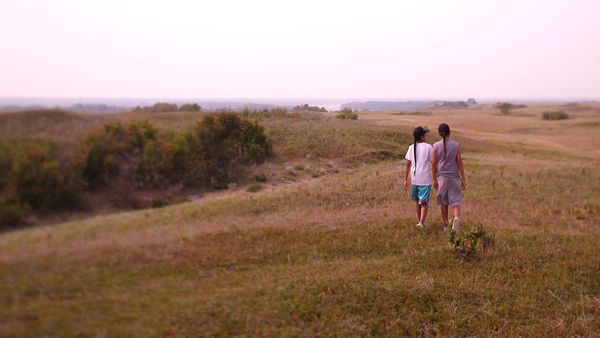Eye For Film >> Movies >> Nîpawistamâsowin: We Will Stand Up (2019) Film Review
Nîpawistamâsowin: We Will Stand Up
Reviewed by: Jennie Kermode

On the 9th of August 2016, 22-year-old Colten Boushie was shot dead by a Saskatchewan farmer, Gerard Stanley. This much is not in dispute. The subsequent police investigation and trial raised many difficult questions, however. Colten was Cree, Stanley was white, and the case seemed to encapsulate a troubled history quite at odds with Canada's view of itself as a progressive nation according each of its citizens equal value.
There is no Creen word for justice, an old man tells us partway through Tasha Hubbard's documentary. Rather, nîpawistamâsowin is a concept which draws together justice as outsiders might understand it with the concept of respect. If you respect somebody, you don't kill them, and if they have been killed, you seek to expose the truth about what happened and ensure that due respect is restored.
"When he was a little boy, he was so smart and he had Harry Potter glasses and he was really into science," remembers Colten's mother fondly. She learned of his death when police officers arrived at her home, twisted her arms behind her back and held her still whilst they searched the place, apparently convinced that they would find something illegal. What had he been doing on Stanley's land? they asked. His friends who had been with him at the time said that their SUV was damaged and the farmer had a reputation for being able to fix cars. Stanley didn't argue with this but suggested that it had been natural for him to feel intimidated, to approach the group of young people with a gun in his hands. it was an accident, he said, that caused him to shoot Colten.
There's more here than just one white man and one Cree youth. As she follows Colten's family and their allies through the court case, Hubbard also explores the historical experience of the Cree. The deliberate massacre of the buffalo on which they depended, so that they would become desperate and dependent; the false promises and the signing of the Indian Act that robbed them of their ancestral lands; the reservations, the women forced into sex work to feed their children; the introduction of a permit requirement for travel and the ban on hiring lawyers. This, and the inevitable fear that white settlers felt as a result - a fear that has lingered into the present. Would Stanley have reacted the same way to the sight of a white youth?
How much of the legacy of racism remains present in the institutions responsible for dealing with cases like this? Hubbard looks at the police investigation of the case, the poor resourcing, the mishandling of evidence, the body left uncovered in the rain. The court case would become a matter of national controversy, from the objections instantly raised towards any Native person who might have been selected for the jury to the bizarre handling of firearms evidence. Inevitably, some people would complain that the trial was unreasonably politicised, especially after Justin Trudeau ventured an opinion on its outcome. They will say the same about this film, but Hubbard makes a strong case for a political view being appropriate. She also gives the family space to show us who Colten was - flaws and all - and remember him as more than just another victim.
Reviewed on: 21 Feb 2020















